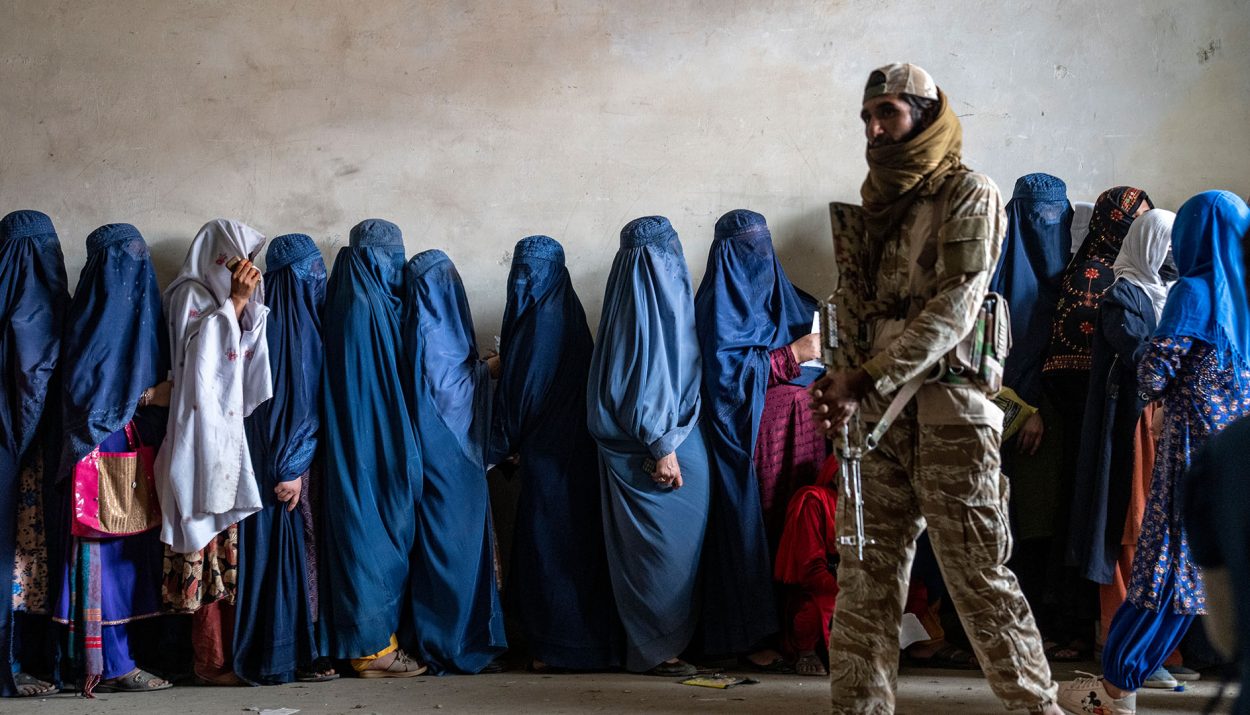In a recently aired broadcast on the state television of Afghanistan, Mullah Hibatullah Akhundzada, the Supreme Leader of the Taliban, has announced plans to begin a campaign of publicly stoning women to death for violating Sharia law. The United Nations, as well as women’s rights organizations across the globe, are voicing their concern over this.
A defiant Akhundzada spoke out against Western democracy for what he believes is interference in the laws and customs of the Taliban. Let’s take a closer look at the Taliban’s views on women’s rights under the law and the history of stoning as an execution method.
Akhundzada’s Fiery Message
As the Taliban’s Supreme Leader, Akhundzada issues occasional voice messages to be broadcast over the state-controlled television, although he is never publicly seen. In his most recent address, he stated, “We will soon implement the punishment for adultery.”

He continued,” We will flog women in public. We will stone them to death in public.” This is his harshest declaration since the Taliban took over Kabul in August 2021.
Addressing His Comments to Western World Leaders
Akhundzana addressed Western world leaders and humanitarian groups in his fiery and defiant message, stating, “You say it’s a violation of women’s rights when we stone them to death.” He noted that women’s rights violate Islamic Sharia law, which the Taliban vows to uphold.
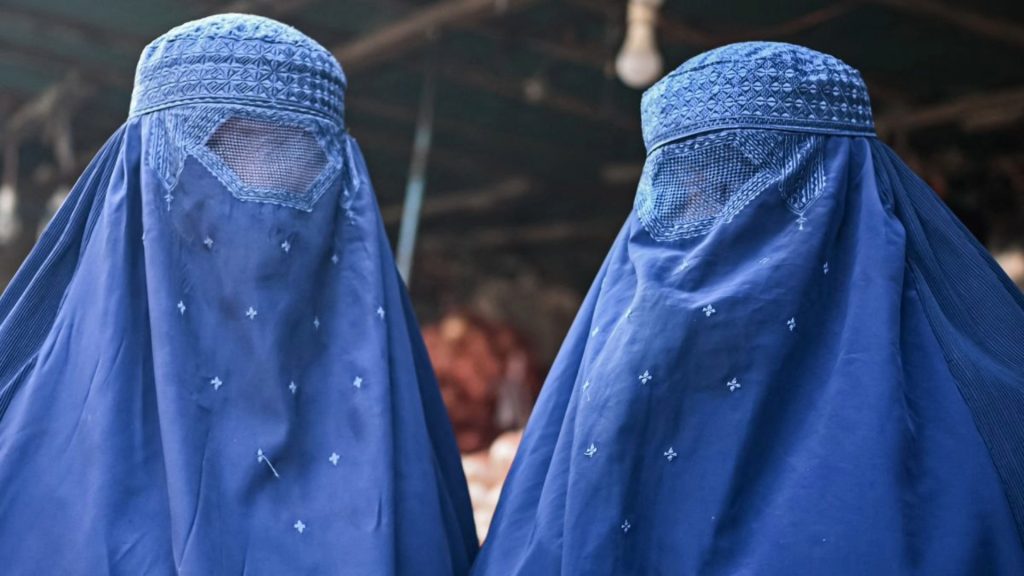
He continued, “These are all against your democracy, but we will continue doing it. We both say we defend human rights – we do it as God’s representative and you as the devil’s.” The Taliban sites Sharia law as justification for its brutal public punishments and executions.
Who Are the Taliban?
The Taliban is a group of Islamic-based fundamentalists who gained political power in Afghanistan in the early 1990s. Although they are not necessarily a state-sponsored organization, the Taliban used their military might to take over most of Afghanistan by the middle of the 1990s.
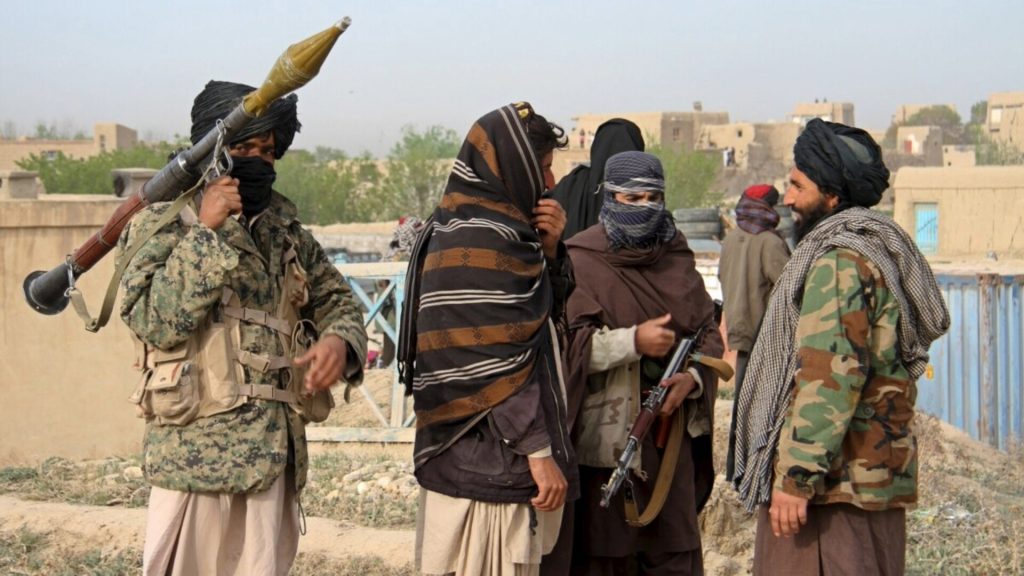
The Taliban gave Osama bin Laden and other members of the al-Qaeda terrorist group a place to hide out, hone their military skills, and plot their terrorist activities against the West. This sparked the 2001 invasion of Afghanistan by U.S.-led forces. Although the Taliban was ousted from power, they never really went away. Instead, they regrouped and gained more power until they once again controlled the country.
The Taliban’s Belief System
As religious fundamentalists, the Taliban adheres closely to their own interpretation of Islam’s Sharia law. They follow a strict set of social codes that includes bans on consuming pork and alcohol, watching television and movies, participating in sports, taking and displaying photographs, surfing the internet, and even keeping pets.

The restrictions for women are even more severe. Women and girls cannot work or attend school. They must abide by a strict dress code and have a male relative as a chaperone. Women are forbidden from being in the company of a man.
Punishments Are Violent and Harsh Under the Taliban’s Sharia Law
Capital punishment is a central part of the Taliban’s observance of Sharia law. Even minor offenses can result in a death sentence. Flogging is a common form of punishment. Thieves are punished by amputating their hands or feet.
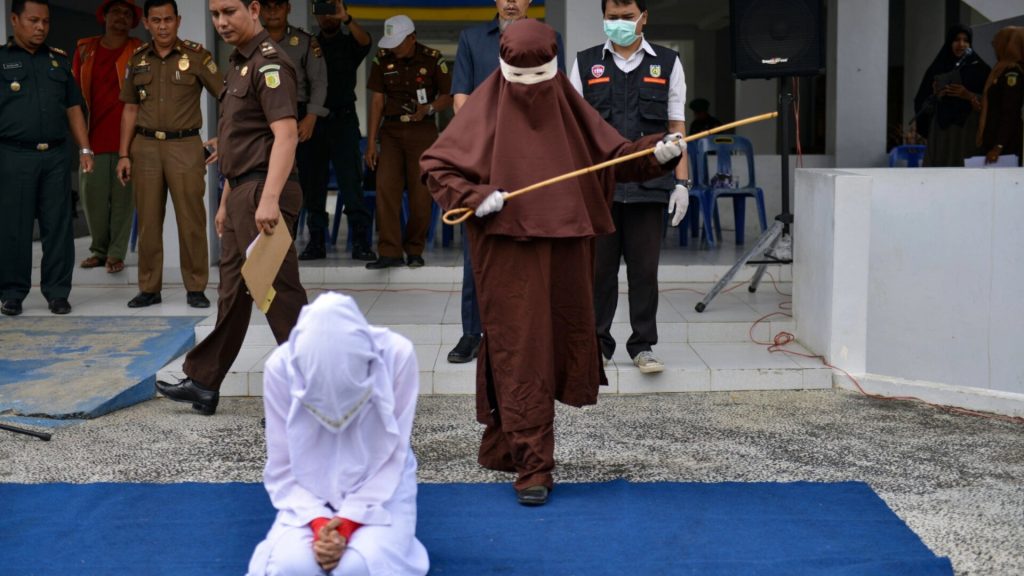
Punishments and executions are conducted in public as a way of deterring others from violating the Sharia law and to instill fear and obedience in the public.
A Brief History of Stoning
Stoning as an execution method goes back centuries. It was practiced by many different cultures around the world. To understand why the Taliban would use stoning as a form of capital punishment, we need to look at stoning in ancient times.
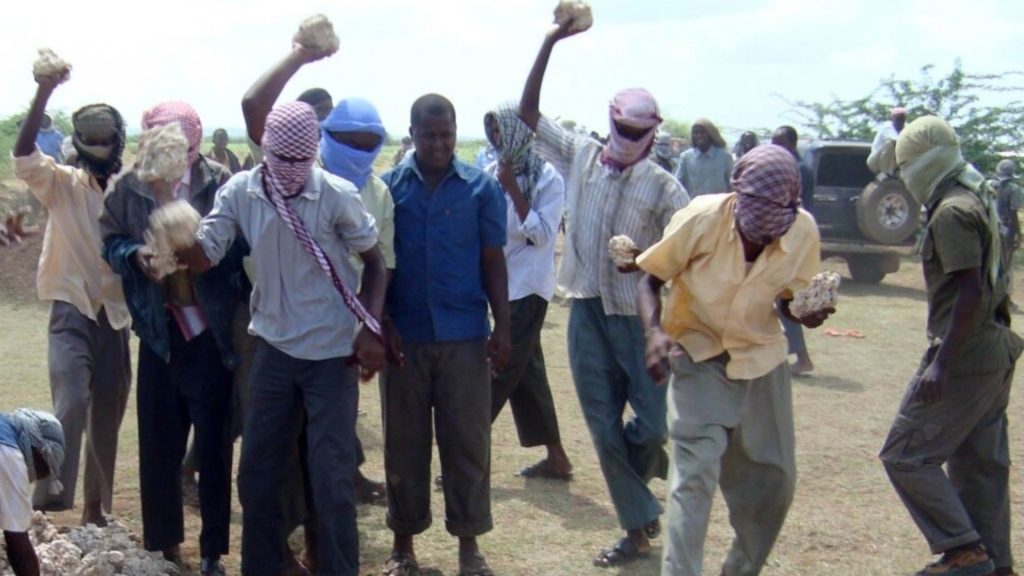
Stoning was often used to punish people who violated religious laws or rules, such as committing blasphemy or adultery. This type of execution was done publicly and was participatory in nature. Citizens were invited to throw their own stones at the victim.
Stoning in Religious Texts
Stoning was used in ancient Greek and Roman times. Documents show that the people of ancient Mesopotamia engaged in stoning. Several religious texts include references to stoning, including the Christian Bible, the Torah, and the Talmud.
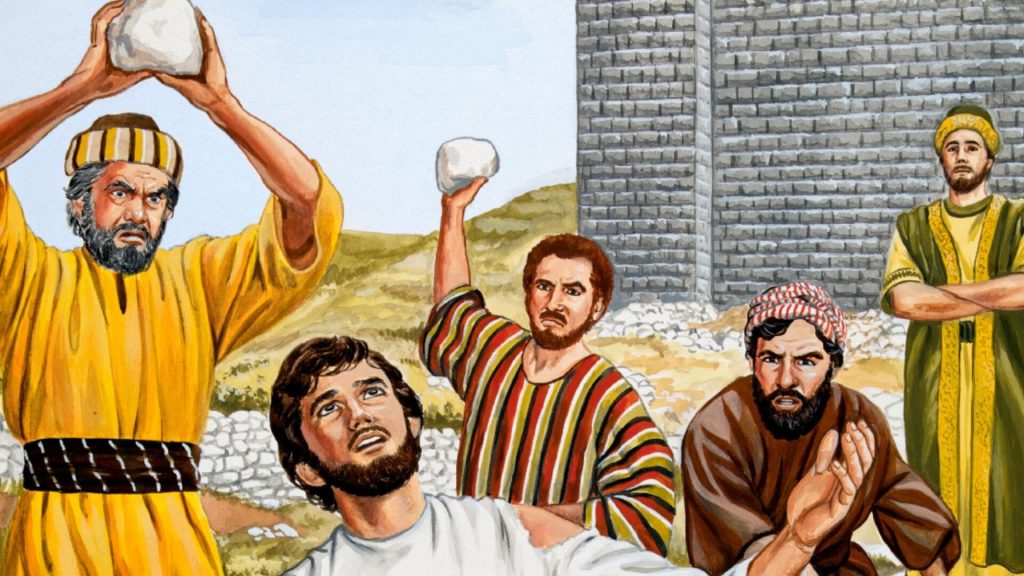
Today, stoning is still used as a form of punishment, particularly by followers of Sharia law. Women accused of adultery, men accused of homosexuality, and people of either sex who are accused of apostasy – refusing to follow or obey a religious rule.
Stoning Is a Long and Brutal Execution Method
Many forms of execution, such as beheading, hanging, and the firing squad, result in a fairly quick death. That is not the case with stoning. It is a long, drawn-out, and brutal way to die. The victim can endure hours of constant injuries as a group of people throw stones at them.

The cause of death is almost always blunt force trauma, but the trauma takes a long time before death is achieved. Humanitarian groups label stoning as a type of torture. They contend that it violates human rights and dignity. The United Nations has called for an end to stoning, but it is still practiced in a few countries, including Afghanistan.
International Outcry Over Akhundzada’s Remarks
When Mullah Hibatullah Akhundzada announced the Taliban’s intention to resume stoning women who violate Sharia law, his remarks were met with international outcry. The United Nations has called on the leaders of Afghanistan to put an end to the practice of stoning.
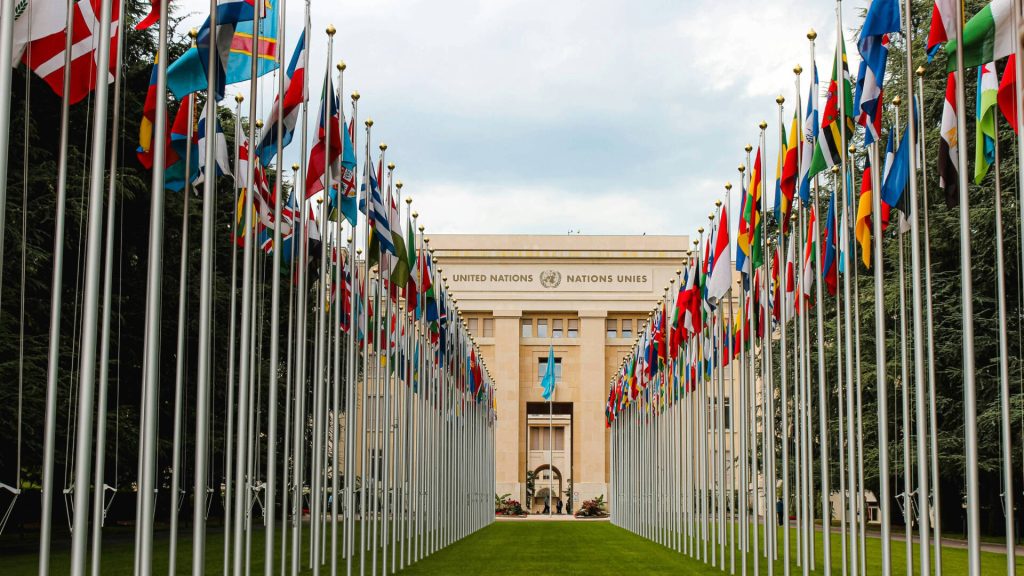
Akhundzada, however, seemed to mock the concerns of Western leaders and women’s rights groups. He asked, “Do women even want the rights that Westerners are talking about?”
Doubling Down on His Anti-West Rhetoric
Akhundzada declared that the West is “against Sharia and clerics’ opinions.” He called for Taliban soldiers to be resilient when enforcing Sharia law on women.

He stated, “We will bring Sharia to this land. It did not finish after we took over Kabul. No! We now bring Sharia back into action.”
“As a Woman, I don’t Feel Safe”
A woman named Tala, former civil servant living in the Afghani capital of Kabul, spoke to a reporter from The Telegraph, explaining, “The money that they receive from the international community as humanitarian aid is just feeding them against women.”
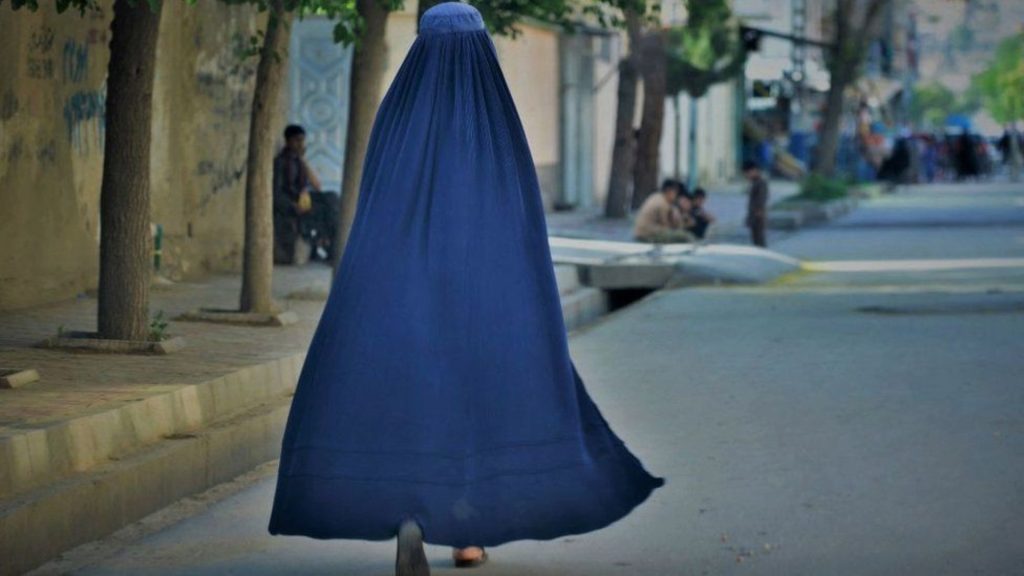
She added, “As a woman, I don’t feel safe and secure in Afghanistan.” The Taliban leaders are so anti-woman that it is impossible for women to be treated fairly.
“Women Are Living in a Prison”
She continued, “Each morning starts with a barrage of notices and orders imposing restrictions and stringent rules on women, stripping away even the smallest joys and extinguishing hope for a brighter future.”
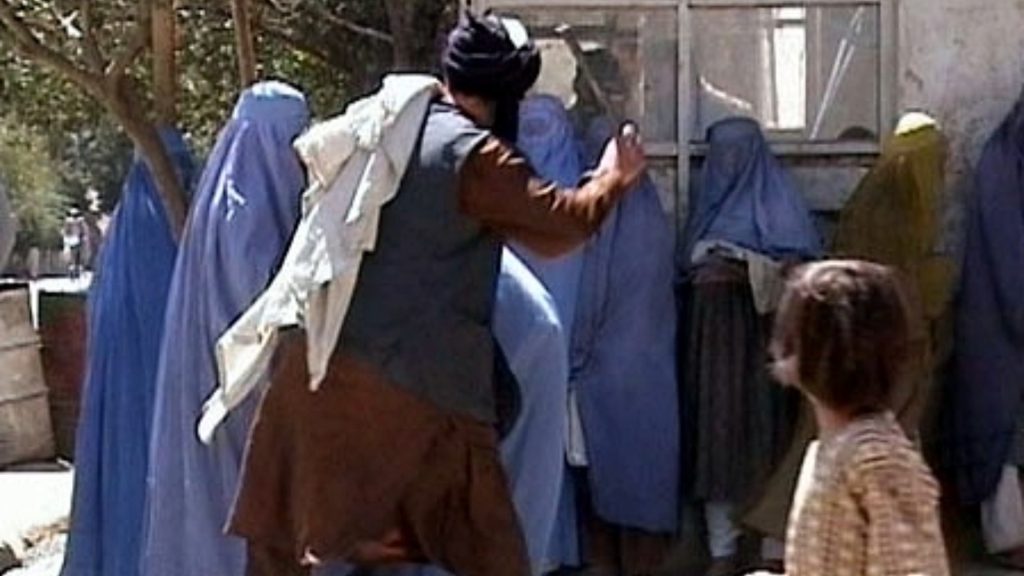
“We, the women, are living in a prison,” Tala explained. “And the Taliban are making it smaller for us every passing day.”
Akhundzada Remains Committed to His Ideology
In his television broadcast, Akhundzada stated, “I told the Mujahedin that we tell the Westerners that we fought against you for 20 years and we will fight 20 and even more years against you.
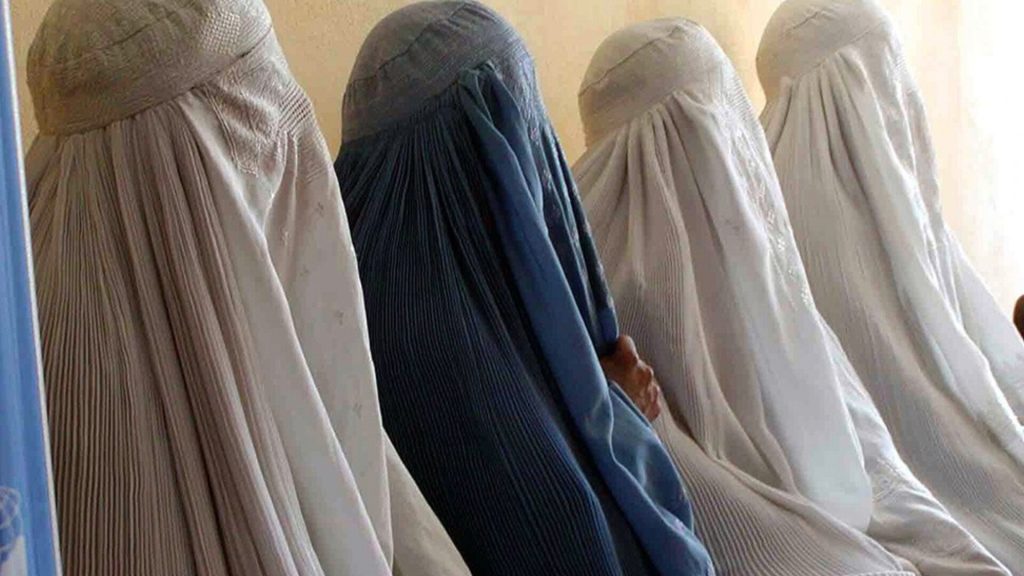
He continued, “It did not finish (when you left). It does not mean we would now just sit and drink tea.” What it means, according to his broadcasts, is that the women of Afghanistan face even more oppression and the possibility of a horrific death sentence if they refuse to abide by Sharia law.

